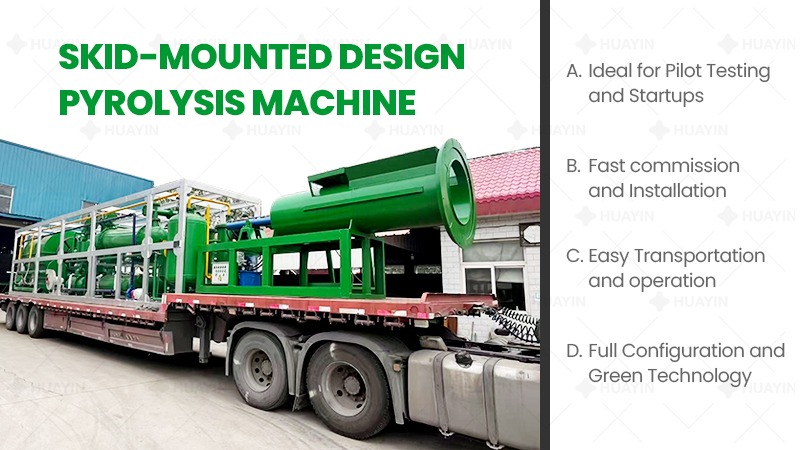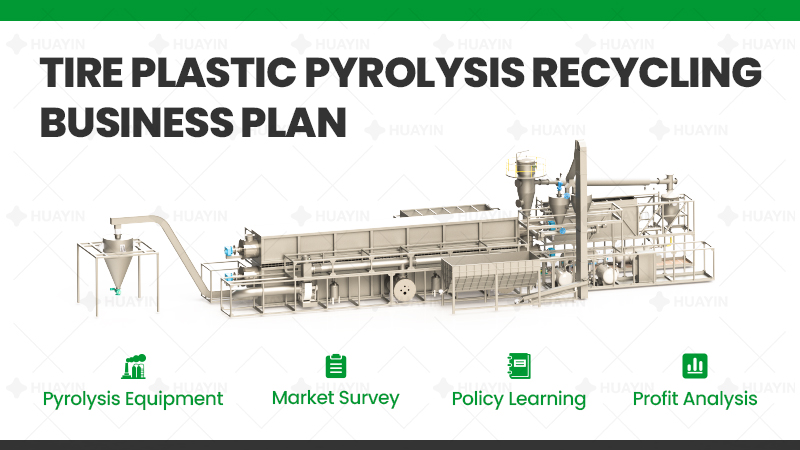The material of the pyrolysis reactor directly affects the service life, safety and stability of the pyrolysis equipment. If the selected steel is not suitable, the pyrolysis equipment may develop problems such as bulging within a few years. This will increase your investment cost. Therefore, it is very important to choose the material of the pyrolysis reactor correctly.
The main materials available in the market are as follows:
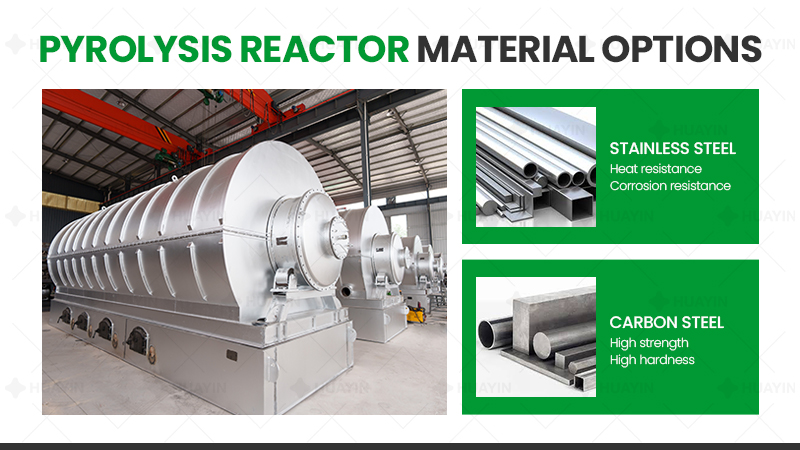
1. Carbon steel
Carbon steel is the most commonly used material for pyrolysis reactors because it strikes a good balance between performance and cost. It is particularly suitable for processing used tires and most common waste plastics (such as PE, PP, PS).
However, even though they are all carbon steel, there are different models, and the main differences lie in strength and durability.
- Q235 common steel plate: This is the most common type of steel, with low strength and poor heat resistance. Some very cheap devices may use it, but there are significant security risks involved and it is not recommended.
- Q245R/Q345R special steel for boilers and pressure vessels: This material must be used for professional equipment.
- Q345R: It has higher strength, is more resistant to high temperature and high pressure, and can make the pyrolysis equipment last longer and be safer. It is the first choice for most standard equipment.
- Q245R: Its strength is slightly lower than that of Q345R, but when dealing with materials with a higher sulfur content, its corrosion resistance is sometimes better.
If you are dealing with tires or ordinary plastics, choosing Q345R or Q245R boiler steel is the most suitable, with a high cost performance.
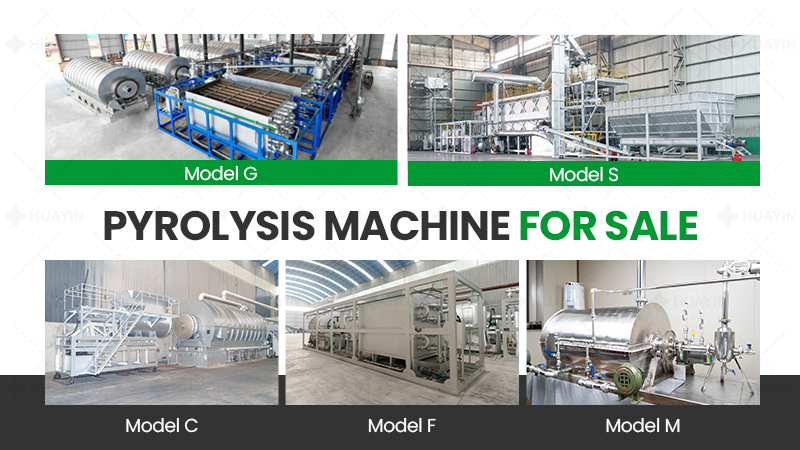
2. Stainless steel
In certain specific circumstances, stainless steel must be used.
- When handling special raw materials: If your raw materials contain PVC plastic (which can produce highly corrosive gases), or if you are dealing with complex materials such as oil sludge or medical waste, ordinary carbon steel will be corroded and damaged very quickly. At this point, stainless steel must be used.
- Extending equipment lifespan: The corrosion resistance and high-temperature resistance of stainless steel far exceed those of carbon steel, which can significantly extend the service life of the pyrolysis reactor. Meanwhile, its inner wall is smoother, which can reduce the phenomenon of materials adhering to the furnace wall (coking).
The commonly used stainless steel grades are 304 and 316.
- 304 stainless steel: It can withstand most corrosive conditions and is a relatively universal choice.
- 316 stainless steel: With the addition of special elements (molybdenum), it is particularly resistant to chloride corrosion (corrosion caused by PVC) and is the best choice for handling complex harsh materials.
Of course, the cost of stainless steel is much higher than that of carbon steel, so pyrolysis equipment made of stainless steel will be more expensive.
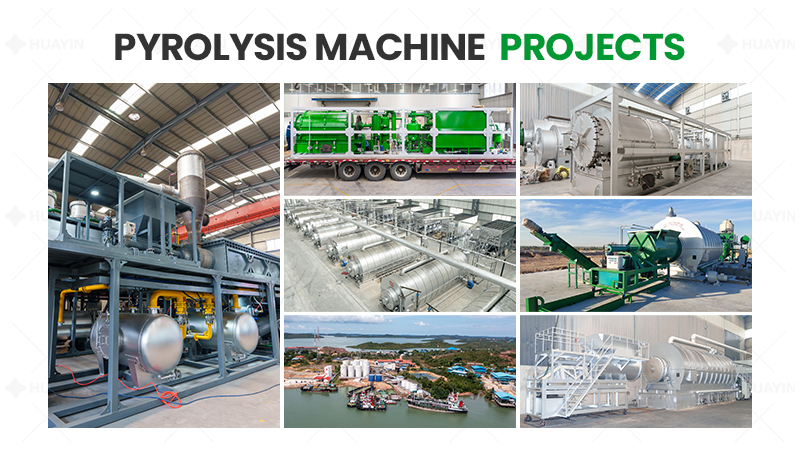
3. Specialty and Composite Materials
In addition to the two basic materials mentioned above, there are also specialized upgrade options for specific needs:
- 15 Chrome Molybdenum Steel (15CrMo): This is a high-temperature resistant alloy steel, particularly suitable for oil sludge recycling. If your process requires operation at ultra-high temperatures or if you have extremely high demands on equipment life, 15CrMo is a more reliable upgrade than Q345R, with a cost somewhere between carbon steel and stainless steel.
- Q245R+310S Composite Steel: This is a composite material with an inner layer of 310S stainless steel and an outer layer of Q245R carbon steel. The stainless steel inner layer provides corrosion resistance, while the carbon steel outer layer provides strength and reduces costs. This is a highly cost-effective compromise when you need to process corrosive materials but want to maintain a tight budget.
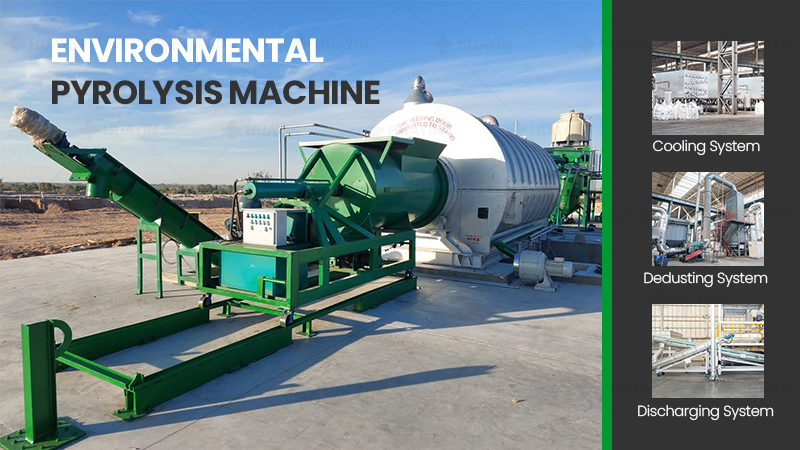
In general, the choice of materials for pyrolysis reactor is entirely dependent on your specific needs. If you are still unsure which material to choose, you can contact us at any time. Huayin Company will provide you with the most professional and suitable advice based on your specific circumstances.

